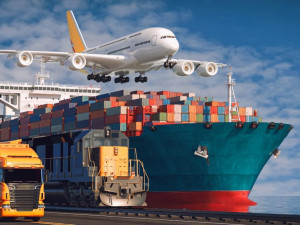
An efficient, well functioning supplier process is a crucial element for many businesses’ success, as a cornerstone of both a healthy balance sheet and the ability to flex fast in the face of changes in demand. That’s even more the case when you’re doing business internationally, with the added risk of currency volatility and different jurisdictions. Here are our top 5 tips to manage payments to overseas suppliers.

1. Ensure all goods are correctly categorised in the HS framework
If you are depending on suppliers for physical items, whether buying goods to sell on to a consumer market or obtaining parts or materials for your own products, making the import process as smooth as possible is a key part of managing payments to overseas suppliers.
If you have all suppliers confirm in advance the correct Harmonised Systems (HS) code – an internationally standardised way to classify products – then you can easily calculate duties and import taxes. If the codes don’t match or are incorrect, then you could find yourself paying extra duties, then having to go into dispute and then reclaim money. As we’ll see in many of these examples, complexity is the enemy of a smooth payment process to your suppliers.
2. Encourage the use of automated duty-paid delivery
Again, if you’re depending on overseas suppliers for physical goods from multiple jurisdictions, customs rules can become complex. By far the simplest choice for both sides is to work with suppliers who offer automated duty-paid delivery (also known as DDP, or ‘delivered duty paid’). This is where the retail price you pay already includes any import or export duties and other tariffs from the beginning, meaning no additional fees should crop up later in the journey.
Likewise, automation means customs declarations can be auto-populated with all the critical details you will need for it to pass through the border, including relevant registration and VAT numbers and other tax identifiers.
3. Set up a robust dispute mechanism for both sides
If either you or another party disputes part of a payment or price, it’s easy to see how this can add significant delays to payments to your overseas suppliers. Working internationally, you have an extra level of legal complexity, so the first element is to ensure your contracts state the court of choice. This offers you the protection of ensuring, by and large, that your case will be heard under the laws of the jurisdiction that is agreed to in your contract, such as England and Wales.
In the same vein, ensure that you explicitly set out quality standards for any service or product – digital or physical – as these can differ significantly between regions. As long as you have an overt set of standards both parties have agreed on, you have a clear-cut source of truth to help guide disputes and resolve them as quickly as possible.
4. Choose the payment rhythm that best suits your cash flow
You have a number of options for managing timescales of payments to overseas suppliers, so ensure you’re using the method that best suits your own cash flow. Among these are:
- Cash in advance: You agree to pay the required amount before any goods are shipped; as soon as this is received, the supplier must send the goods. This is perhaps the simplest method, but it can be risky in the case of disputes, as you will need to recover the full sum.
- Documentary collection: In this case, the supplier first sends their goods and then passes the export documentation to their bank. The bank then draws up a bill of exchange, which serves as a legal demand of payment from the supplier to you.
- Letter of credit: A letter of credit guarantees to the supplier that they will be paid upon receipt of the export documentation. Again, they will ship the goods, send the documentation and then, in this case, be guaranteed to receive the payment if all is correct. This is safer for the supplier but can cause extra paperwork for you.
- Open account payment: We now come to the opposite end of the scale to cash in advance; an open account means that all the supplier’s goods are both shipped and delivered before they request payment, often on a timescale of 30, 60 or 90 days. A variation of this is the consignment method, by which payments to suppliers are further delayed until you have sold the product on to the end consumer.
Choosing the best method will depend both on your relationship with the supplier and, as mentioned above, your own cash flow – but can be a key way to ensure that your revenue and payment cycles mesh together smoothly.

5. Protect international payments from the currency markets
No matter how well oiled your payment processes, you will at some point need to confront the risks of the currency markets. As any regular reader of our blog knows, the FX markets never stop moving. This makes it totally impossible to predict cross-border costs with anything approaching certainty – unless you set in place hedging strategies.
For example, imagine that you had a bill in Chinese yuan of CNY10,000, with your own currency being the US dollar. On 1st October 2022, that would have cost you around $1,370. By 15th January 2023, the cost would have been nearly $1,500 – adding an extra $130 to one single payment. Add up that cost of volatility across all your payments to overseas suppliers, and it becomes a significant source of unnecessary cash burn.
That’s why it’s so important to get certainty over the costs of your international payments. For many businesses, the solution is a forward contract.
This is a simple yet effective way to lock in the current exchange rate for a set period, such as six or twelve months. You simply agree to the total sum you’ll be transferring over that set timeframe, agree to fix the exchange rate and, upon payment of a deposit, are free to make the rest of your payments as you need until the contract finishes. Throughout the whole period, you have absolute certainty over your costs – giving you the ability to accurately forecast and plan your payments.
Protect your business in uncertain times
In a world of such volatility, having strategies such as the above to bring some certainty to your cash flow and operations is crucial. Make sure you read our import-export articles and get the latest news from the currency markets by subscribing to our newsletter.
Alexander Fordham
Alexander is a writer specialising in foreign exchange and finance for companies with cross-border exposure. He’s written on topics including currency risk, international taxation and global employment for seven years. You can find him out hiking, travelling and working from Spain in the sunnier months.



